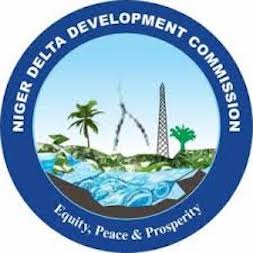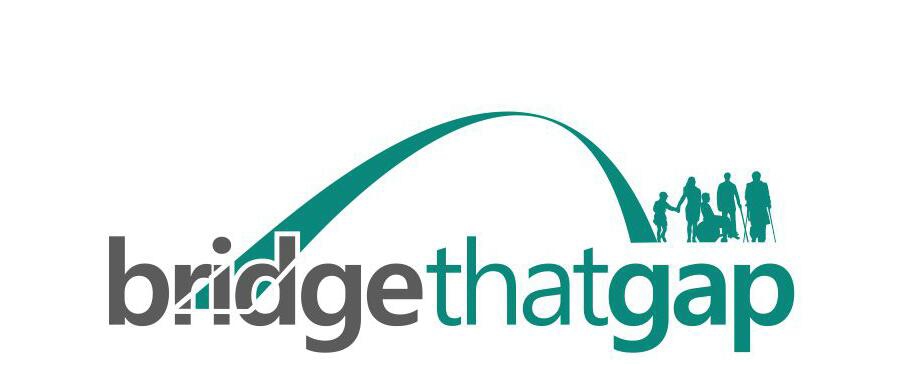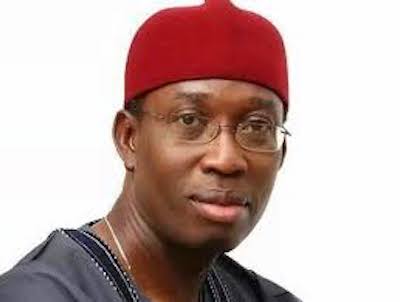Environment
How Climate Change is Causing Poverty, Hunger in the Niger Delta

…How Climate Change is Causing Poverty
By Alice Onukwugha
Recently countries of the world, especially the global north, have identified climate change as one of the dangers to human health, thus the need to move from fossil fuel to renewable energy.
International Bodies such as the United Nations, the Conference of Parties for Climate Change (COP), etc.
, are taking the lead in coming up with Documents and Decisions to help nations of the world, especially the Global South take conscious steps in adopting renewable energy.Already, 11 countries of the world, including Costa Rica, Scotland, Iceland, Germany, Uraguay, Denmark, China, Morocco, New Zealand, and Norway, are taking the lead in adopting renewable energies.
However, Nigeria, Africa’s crude oil production and export giant is yet to come up with conscious policy to adopt renewable energy. The resultant effect, is the continued degradation of the Niger Delta region where oil exploration and exploitation have been going on for over five decades.
While people of the region still grapple with the challenges of degradation, the region in the last decade has also been ravaged with yearly flooding, destroying more crops, farmlands, communities, and as well resulting in death of many.
Recently, the Lekeh Development Foundation facilitated the maiden edition of the Niger Delta Climate Change Conference in Port Harcourt the Rivers State capital to chart a course for the Niger Delta people through conscious Action Plan.
The Conference, which attracted both Nigerian and international environmental bodies and activists, targeted deepening conversations around climate change impacts and awareness on the negative impacts of fossil fuel extraction, particularly on women and young people living in the region. It also afforded the opportunity to interrogate the climate policies in Nigeria.
According to participants, climate change effects have added to the woes of the Niger Delta region and it’s people in terms of hunger, poverty and deaths.
In his paper titled: “Loss and Damage in the Context of Global Climate Justice Movement, Executive Director, We the People, Ken Henshaw, said the people of the Niger Delta were dying of hunger as a result of flooding that submerge their farmlands and communities as a result of excess rain caused by climate change.
According to him, while the annual perennial flooding had been attributed to opening of the Dam at Cameroun, the primary reason for the flooding is increase in waters as a result of excess rain fall due to climate change.
He said his interactions with people from the Orashi region in Rivers State, showed that large portions of community lands have been washed off due to flooding, thus resulting in shortage of farm products and means of livelihood of the people.
Also, in her paper titled: “Climate Change Impacts: Niger Delta Realities and Women’s Peculiarities, Executive Director, KebetKatche, Emem Okon, submitted that climate change have affected the livelihood of women in the Niger Delta who are mostly farmers, thus resulting in poverty and hunger in the region.
She said: “Most women are bread winners of their families and when they don’t have a means of livelihood, when they can’t farm because their crops have been destroyed by climate change, then it leads to hunger, it leads to poverty. The family can no longer survive.
She identified the impact of climate change on the Niger Delta to include; infertility, decrease in crop yield, increase in food prices and decrease in water supply, amongst others.
Also, people from Odual communities in Abua/Odual local government area of Rivers State, who spoke to this reporter during interviews, said they were going through excruciating hunger and hardship as a result of the ravaging flooding that destroy their farmlands, crops and products on yearly basis.
A woman who gave her name as Victoria told this reporter that last year and uptil now her family mostly survived on palm kernel for meals.
“In my community, Odau, we survived on palm kernels. If you walk round the community you see people breaking kernels to eat. There was no way for survival. The flood destroyed all our cassava, our banana and plantain plantations.
“And you know that we depend on our cassava and plantations for both food and as source of income. So you can see that the suffering is too much. We are just hoping and praying that the flood will not come this year”, she said.
She added that the hunger has reduced because it is Ogbono season. “We can now eat and survive because it is Ogbono season. When you pick ogbono and sell you have money to buy food for you and your family. We are hoping that by the time ogbono is over our cassava would have matured for harvesting and that is why we are praying that the flood should not come this year.”
A widow from Okolomade community, who gave her name as Mary, also lamented how she almost died of hunger. “At a point I had to do menial jobs because my children were no longer providing for me. I was sick so I could not harvest any of my farm products before the flood came. I lost everything. I did not take a pin out of my farm. How I survived until this day is just by miracle,” she lamented.
Furthermore, a trader from Okolomade community, who trades on banana, garri and plantain products, Madam Charity, told this reporter that her business was no longer thriving because theere were no enough farm products for her to buy and trade on.
“You know the flood uprooted all the banana and plantains. Then we lost our cassava too to the flood and you know that these are my source of business. Some times I don’t even go to market because I don’t have what to go to the market with.
“Most times I go to some neighbouring communities in Bayelsa and Mbiama to buy. Some times I don’t even see what to buy and I come back empty handed. This had affected my business and profit margin.”, she said.
In charting a way forward, the participants at the conference, in it’s Communique issued at the end of the Two-Day Conference identified environmental injustice against the Niger Delta as a major problem and called for an end to use of fossil fuels by the Nigerian Government.
The Communique, which was signed by representatives of different Environmental Activists who attended the Conference, noted the impact of Climate change on the physical environment and livelihoods with respect to the citizens’ health condition, increases poverty and unemployment, as well as displacements of the people.
“There is a need for awareness creation and mobilization of communities on the dangers of climate change as well as adaptation and mitigation strategies.
“That development partners should intensify their support to community groups to execute climate change mitigation projects to reverse the adverse effects of climate change”, the Communique read in part.
Some recommendations from the Communique included: “Implementation strategies to help communities adapt to climate change. This includes promoting sustainable agriculture practices, enhancing coastal protection measures, and improving flood management systems to reduce the vulnerability of communities to extreme weather events.
“To encourage reforestation initiatives and protect existing forests as forests play a crucial role in absorbing carbon dioxide and regulating temperature, thus mitigating climate change impacts.
“End the continued illegal and unconstitutional routine gas flaring in the region. Halt the expansion of fossil fuel extraction in the Niger Delta and carry out comprehensive clean up and restoration of the heavily degraded environment.
“Promote and implement recommendations of the Bayelsa State Oil and Environment Commission Report and the demands contained in the Niger Delta Alternative Convergence Manifesto.
“Capacity building programs including learning from indigenous knowledge, to enhance knowledge, skills, and resources for climate change adaptation and mitigation.”
Onukwugha is DAILY ASSET Correspondent in Port Harcourt
Environment
BTG set to Tackle Environmental Degradation in Kaduna

In a bid to tackle environmental degradation impacting negatively on communities in Kaduna state, Bridge That Gap Hope for Africa Initiative (BTG), in partnership with the Network of Civil Society in Environment (NCSE) has launched a transformative project aimed at empowering women and advancing sustainable climate governance.
Executive Director Bridge that Gap Hope for Africa Initiative (BTG), Gloria Kasang Bulus, who dropped the hint in Kaduna during the week, regretted that environmental disasters and shocks have deepened poverty and eco-anxiety among women who remain grossly under-represented in decision-making.
The project is tagged “Women Empowerment and Climate Resilience Initiative”While revealing that the project would focus on three Local Government Areas of Zaria, Chikun, and Zango Kataf, Ms Bulus stated that reports from these three local councils were troubling because “they show high levels of environmental degradation, food insecurity and limited female representation in governance structures”
“Kaduna state faces a troubling mix of environmental, social, and economic challenges.
From extensive deforestation and desertification to resource shortages and ecosystem breakdowns, the impacts of climate change have become severe. A report by Global Forest Watch shows that in 2023 alone, the state lost over 5,400 hectares of natural forest, leading to 1.94 million metric tons of CO₂ emissions.These environmental shocks have worsened poverty and eco-anxiety, especially among women who are disproportionately affected but remain underrepresented in decision-making. Although women play important roles in agriculture, small businesses, and household sustainability, they often lack access to platforms and resources that could help them influence climate policies and local development strategies.
The project focuses on LGAs with some of the worst environmental records:
- Zaria LGA suffers from massive vegetation loss due to fuelwood consumption, which accounts for nearly 40% of its deforestation. According to satellite data from 1973 to 2014, over 80% of vegetation in the area has been degraded, highlighting the urgent need for clean energy alternatives and community-led environmental restoration (Global Forest Watch).
- Zango Kataf LGA faces challenges from erratic rainfall, rising temperatures, and soil degradation. Women and internally displaced persons are especially vulnerable to water shortages and land conflicts, worsened by deforestation caused by agricultural practices.
- Chikun LGA, especially communities like Kakau Daji, is experiencing rapid environmental decline due to firewood collection and industrial pollution from nearby petrochemical plants. The ecosystem has suffered from biodiversity loss, soil erosion, and toxic emissions.
With women at the forefront
focusing on gender inclusion and environmental sustainability, the project aims to strengthen women-led coalitions by improving their policy advocacy skills, providing them with energy-efficient cookstoves, and developing a climate action plan that considers gender and Persons with Disabilities (PWD) in line with the Kaduna State Climate Change Policy.
“Women are central to community life. They manage natural resources, care for households, and make significant contributions to the economy.
“However, they still face marginalization in important decisions about the environment and development. By providing women with advocacy tools and encouraging cooperation among policymakers, civil society, and the private sector, the project aims to change this situation”, Bulus volunteered.
According to her, the goals of the initiative is built around four core objectives:
*Enhancing Policy Advocacy Capacity – Training women’s groups to participate in governance structures and advocate for inclusive climate strategies.
*Developing Inclusive Climate Action Plans – Ensuring that gender and PWD perspectives are prioritized in environmental policies.
*Promoting Climate Adaptation – Implementing grassroots solutions like reforestation, clean energy use, and climate-smart agriculture.
*Strengthening Multi-Stakeholder Collaboration – Fostering collaboration among women’s coalitions, government agencies, and environmental stakeholders.
She assured that her organization remains determined to build sustainable communities by removing barriers to basic rights of vulnerable populations.
The organization has also concluded preparations to plant 15,000 trees in the state. To date, over three thousand (3000) economic and forest trees have been planted in Chikun LGA and its environs.
She further disclosed:
“Journalists in Kaduna will also receive training to enhance their skills in effective writing and reporting on climate change-related issues.
“The Partnership for Agile Governance and Climate Engagement (PACE) Project supports coalitions that influence governments to address climate and governance issues affecting the poorest and most vulnerable communities. It aims to boost state government revenue from internal sources, integrate climate actions into state policy, planning, and budgets, and enhance election delivery and credibility.
The program, she stated, is being carried out in Kaduna, Kano, and Jigawa in northwestern Nigeria, with focused strategic engagement at both federal and regional levels.
Environment
First Lady Seeks Lasting Solution to Eradicate Environmental Pollution

The First Lady, Sen. Oluremi Tinubu has called for a lasting solution to eradicate environmental pollution caused by plastic wastes.
In her message to mark the year 2025 World Environment Day, with the theme ‘Ending Plastic Pollution’, in Abuja on Thursday, the first lady also advised people to curtail the way they consume food and drinks packaged in plastics.
“I join millions of Nigerians and the world in calling for urgent and united action to safeguard our environment.
Plastic pollution has become one of the most pressing environmental challenges of our time, affecting our health, our environment, and our future.“In Nigeria, we must rise to this challenge by changing how we consume packaged food items and how we dispose of plastic containers and bags.
“I particularly want to speak to our youths, the leaders of tomorrow, be it in schools or within our neighborhoods, each of you has a role to play in creating a cleaner, healthier and greener Nigeria,” she said.
Mrs Tinubu had recently promised to introduce environmental solutions clubs to schools through her NGO, Renewed Hope Initiative (RHI).
“I want to use this opportunity to introduce our students to two programmes that the RHI will be launching soon.
“First is the Environment Club for Secondary School Students and the Environment Society for Students in Tertiary institutions nationwide to help us clean up our environment and grow more trees.
“Second is the “Flow with Confidence” for our girls in rural communities.
“This programme is to provide one year’s supply of disposable sanitary pads to our adolescent girls to support them to remain in school during their menstrual cycle,” She said.
NAN further reports that some of the functions of RHI environmental clubs in schools would include raising environmental awareness; fostering social and life skills; empowering students to take action and promoting sustainable behaviours.
The clubs can also enhance critical thinking and creativity, encourage healthy lifestyles, and strengthen communities.
The club would encourage students to participate in various environmental projects, like tree planting, recycling, and garden projects, gaining practical experience and deeper understanding.(NAN))
Environment
Billboard accident: Abia Govt. to Offset Victims’ Hospital Bills – ABSAA Official

Abia Government says it will offset the hospital bills of the Aba Billboard accident victims.
Mrs Victoria Onwubiko, Managing Director, Abia State Signage and Advertising Agency (ABSAA) made this known on Thursday in Aba at the Salad Market entrance, the site of the accident.
A big billboard fell on some passengers in five tricycles in Aba on Wednesday, following a boisterous wind, killing one person and injuring seven others.
Onwubiko said the governor had given the necessary approval for procedures regarding the victims’ treatment without hindrances.
“So, we are glad there are not going to be any more deaths; from what we have seen, the victims in the hospital are recovering and doing well.
“We understand that about eight persons were involved in the accident; five are at the Abia University Teaching Hospital, two have been discharged and one is died,” she said.
Onwubiko added that the governor had sent his Chief of Staff to the hospital for the proper management of the victims at ABSUTH, Aba.
According to her, there is no hoping that any one of them will go to the court as the state government is doing everything to take care of them.
He said ABSAA would ensure such accidents did not reoccur noting that henceforth the agency would inspect every advertising site in the state.
“We are going to ask the owners of sites like this to give us the technical drawings with which they built their sites.
“If we don’t see them, the bill board will come down for them to redo it to ensure safety,” she said.
The ABSAA MD said every site, whether high or low, which is not sound, will go down.
Mr Chinedu Nwibo, an eye-witness and a vulcaniser for tricycle operators, said there were seven persons at the entrance of the Salad Market on that Wednesday when the accident occurred.
“We were inside a little makeshift shop I had set up for my work when the rain started on Wednesday.
“The wind was very boisterous and some of the tricycle operators went into their tricycles to stay for the rain to stop.
“No sooner had they ran into their tricycles than a big iron pipe used to hoist a billboard fell on them.
“One Destiny Uguru, 27, from Izzi in Ebonyi state died from the accident while seven persons sustained injury,” he said.
Nwibo called on the government to come to the aid of the victims especially by replacing their tricycles.
“The man that lost his life has an expectant wife and two children,” he said. (NAN)



















